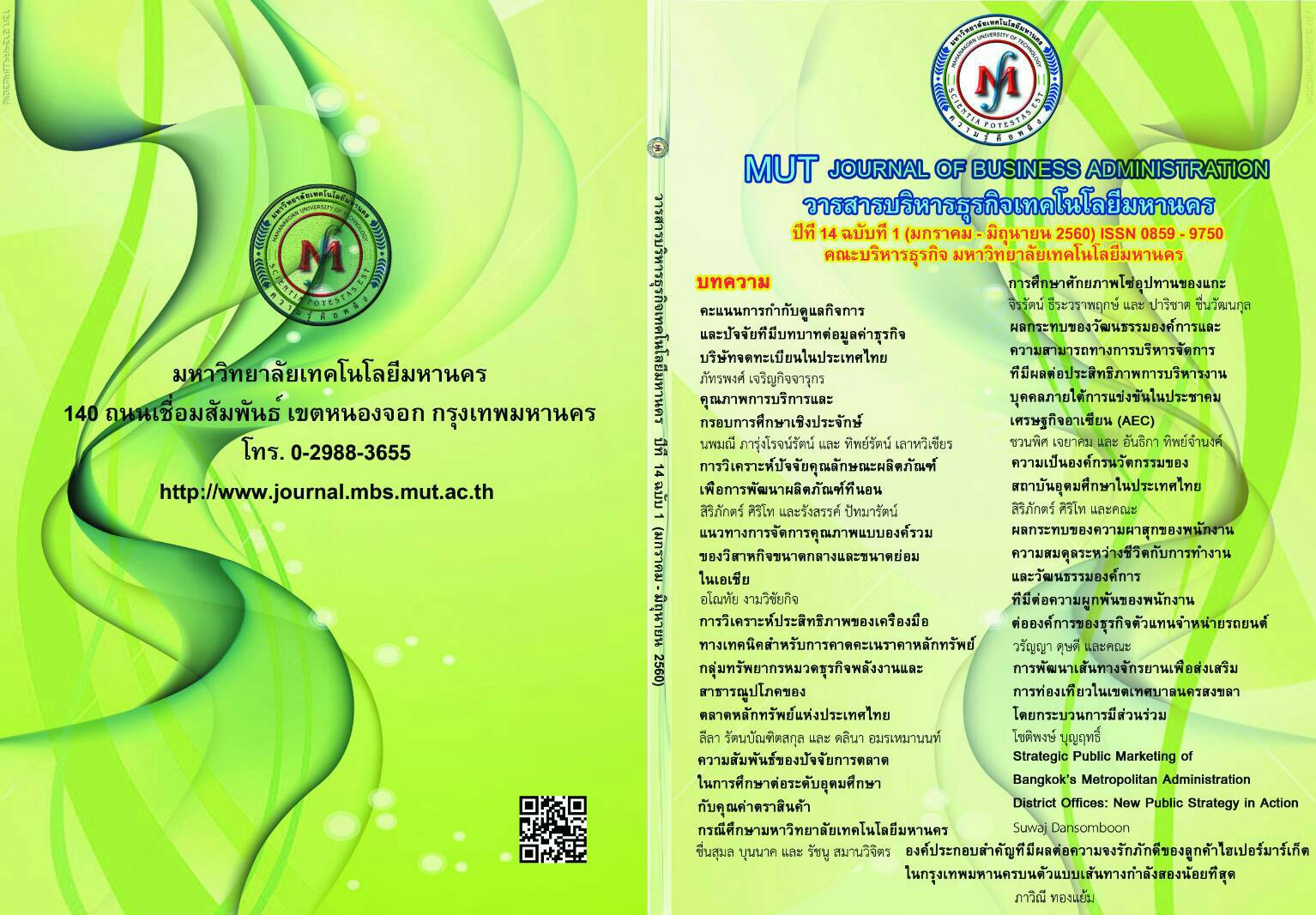Efficiency Analysis of Technical Tools for Securities’ Price Speculation in Energy and Utilities Sectors in the Stock Exchange of Thailand
Keywords:
Technical analysis, Technical Tools, Energy and Utilities Sectors, Stock Exchange of ThailandAbstract
The objective of this study is to test the efficiency of technical tools for investment decisions. Six technical tools that were selected to study are Moving Average Convergence Divergence (MACD), Moving Average (MA), Bollinger Bands, and Relative Strength Index (RSI), Fast Stochastic and Slow Stochastic for simulating investment with the top five market capitalization securities in energy and utilities sector in the Stock Exchange of Thailand. We were collecting the open price, highest and lowest price of securities of the day from 1 January 2011 to 31 December 2015 (5 years). Assumptions were the cash account with the initial investment 1 million Baht and trading security is Board lot with the open price on the next day (commission 0.25% and VAT 7% were included). The results found that the most volume accuracy was RSI (Relative Strength Index) at 76.5%, the least volume accuracy is MACD (Moving Average Convergence Divergence) at 33%. The highest return on investment is RSI (Relative Strength Index) at 22.78% and the lowest returns is MA 25 (Moving Average 25 days) at -29.63%. We found that each technical tool was effective for each security so that the technical tool with the best return was applied to trading simulation. The returns of trading securities that consistent with simulations of the past trading was PTT Public Company Limited by using Bollinger Bands however the best returns of investment was PTT Exploration and Production Public Company Limited (PTTEP) by using Relative Strength Index (RSI).
Downloads
Published
Issue
Section
License
ข้อความ ข้อคิดเห็น ข้อมูล เนื้อหา รูปภาพ แผนภูมิ แผนผัง เป็นต้น ที่ปรากฏและแสดงในบทความต่างๆ ในวารสารบริหารธุรกิจเทคโนโลยีมหานคร ถือเป็นความรับผิดชอบโดยตรงของผู้เขียนบทความนั้นๆ มิใช่เป็นความรับผิดชอบใดๆ ของวารสารบริหารธุรกิจเทคโนโลยีมหานคร และมหาวิทยาลัยเทคโนโลยีมหานคร
บทความที่ตีพิมพ์ในวารสารบริหารธุรกิจเทคโนโลยีมหานคร ถือเป็นลิขสิทธิ์เฉพาะของคณะบริหารธุรกิจ มหาวิทยาลัยเทคโนโลยีมหานคร หากบุคคลหรือหน่วยงานใดต้องการนำทั้งหมดหรือส่วนใดส่วนหนึ่งไปเผยแพร่ต่อหรือเพื่อกระทำการใดๆ จะต้องได้รับการอนุญาตเป็นลายลักษณ์อักษรจากคณะบริหารธุรกิจ มหาวิทยาลัยเทคโนโลยีมหานครก่อนเท่านั้น


